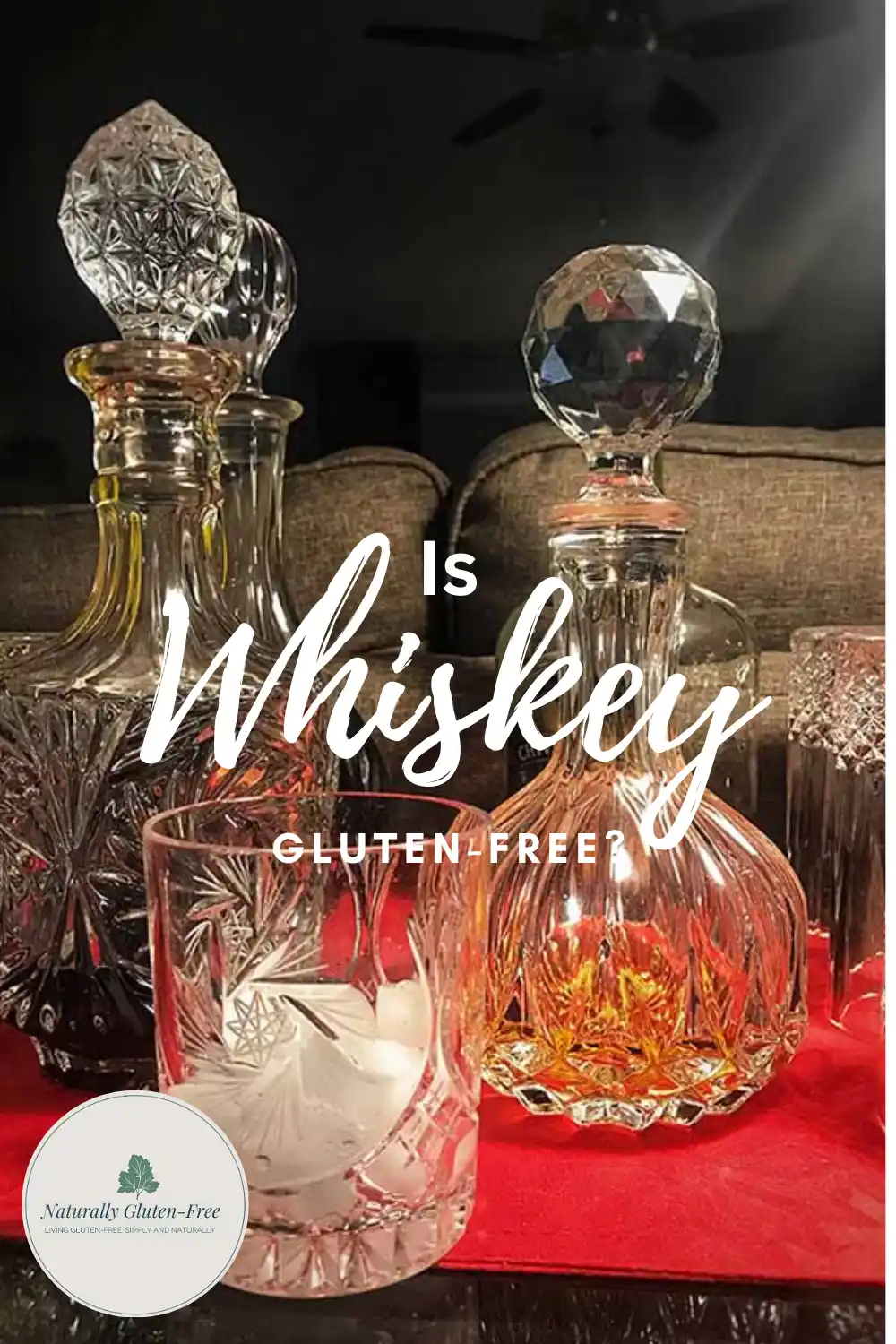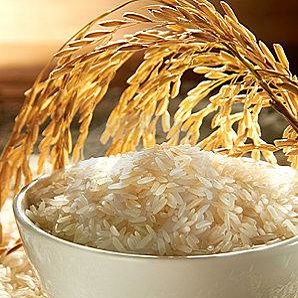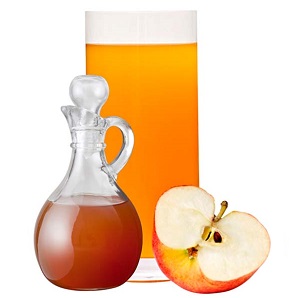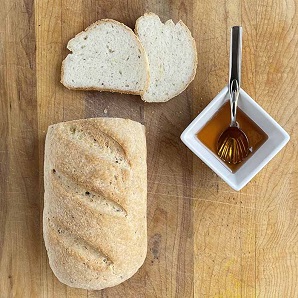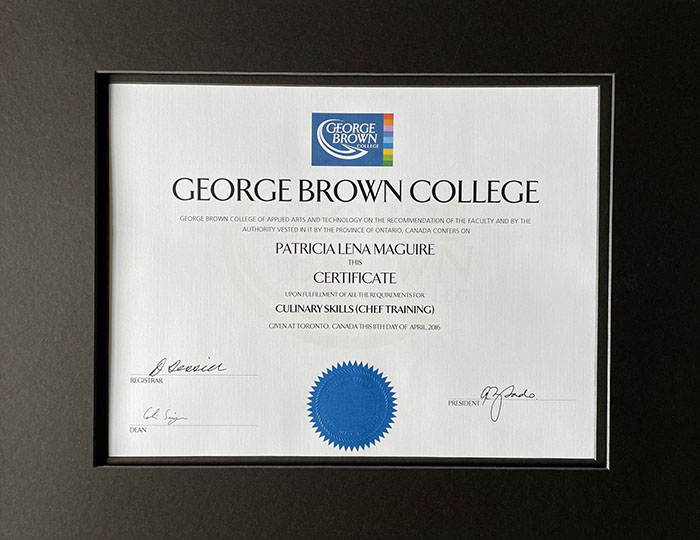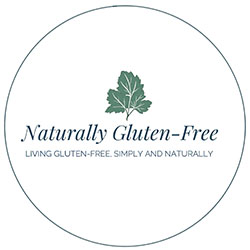- Home
- Gluten Free Alcohol
- Is Whiskey Gluten-Free
Is Whiskey Gluten-Free? Your Guide to Celiac Safe Spirits
Are you a whiskey drinker? Since you’ve come to this page, I’m going to guess that you are and the question "Is whiskey gluten-free?" brought you here.
The short answer is yes - pure distilled whiskey is gluten-free, even when it's made from gluten-containing grains like wheat, barley, or rye.
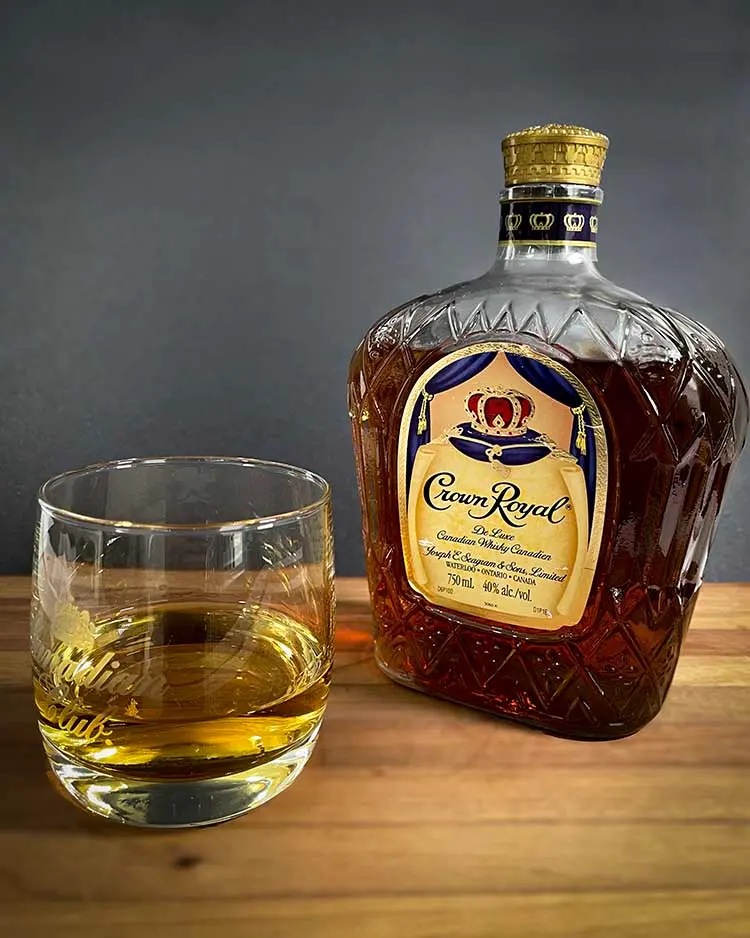
I understand why you may still have questions though How could a drink made from gluten-containing grains be safe for people with celiac disease?
I’ve read the studies, the articles, the blog posts. I’ve reached out to distilleries, scoured their websites and talked to experts. So, let's dive into the science behind why whiskey is gluten-free and address some common concerns you might have.
How Whiskey Is Made
Whiskey is made from grains like barley, rye, or wheat, which contain gluten. So how can whisky be safe for people with celiac? The secret is distillation.
Whiskey is distilled. This means the liquid is heated until it vaporizes, then the vapor is collected and cooled back into liquid form. This process leaves behind the gluten proteins, which are too heavy to vaporize.
What Expert’s Say about Gluten in Whiskey
Celiac Canada1, The US Alcohol and Tobacco Tax and Trade Bureau2 and the FDA3 all recognize that distilled spirits, including whiskey, are gluten-free - even when made from gluten-containing grains.
Can People with Celiac Disease React to Whiskey?
What I’m about to share comes from years of sorting through my own challenges with whisky and other distilled spirits. I’ve dug into common explanations, debunked myths, consulted doctors, and reached my own conclusions. Your experience may be different, but I’m hoping I can offer some direction and save you some time.
Whiskey or Whisky — What’s the Difference?
You may see both spellings — whiskey and whisky — and wonder if they mean the same thing. They do! The spelling just depends on where it’s made:
- Whiskey (with an e) comes from Ireland and the United States
- Whisky (no e) is used in Scotland, Canada, and Japan
So, Crown Royal is labeled “Canadian whisky,” while Jack Daniel’s is “Tennessee whiskey.” No matter the spelling, if it’s a distilled spirit made without added gluten ingredients, it’s gluten-free.
My Personal Experience with Whiskey and Other Spirits
After going gluten-free in 2012, I continued to enjoy whiskey and other distilled drinks with no problem. After a few years I began to notice a little whiskey left me dizzy and lightheaded.
Then Christmas 2018 happened. A few sips of a rye-based gin liqueur put me in bed for three days. The migraine, stiff neck, lethargy, and feeling like my insides were swollen and trying to escape my body are for me are typical symptoms of glutening. I was convinced that I was reacting to trace amounts of gluten in distilled spirits.
How could this be happening if distillation eliminates gluten?
Common Explanations for Celiac Reactions to Whiskey
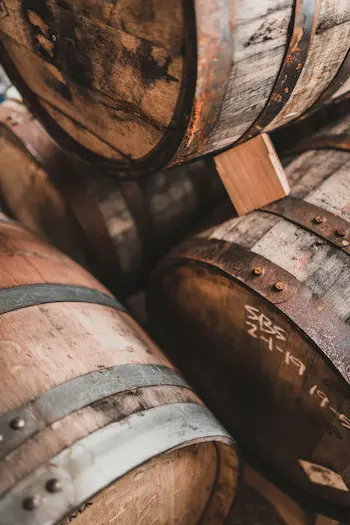 Photo by August Phlieger on Unsplash
Photo by August Phlieger on UnsplashYou may have seen these on the internet or in forums. They come up often, but usually without scientific reference, so I became skeptical and decided to look for evidence. What I found was so slim that I’m just about ready to call these myths. Let’s take a look.
1. Cross-Contact in Distilleries
It’s understandable to worry about cross-contact in facilities that process gluten grains. But distilleries follow strict hygiene protocols to prevent contamination, and the distillation process itself acts as a purification step, removing protein contaminants.
So why do we so often see the words “There is a risk for gluten cross-contact in facilities that process products containing wheat, barley, or rye.”? I’ve read many articles with this statement, but none provide a source. In my opinion, this is a CYA statement and is of little value to people like you and me who just want facts.
Advice: Choose trusted brands with good manufacturing practices.
2. Additives After Distillation
This is another explanation that we often see in blogs and articles, even on trusted health related websites. “Some flavored whiskeys or liqueurs may have additives introduced after distillation” they say.
I’ve investigated major brands including Canadian Club, Crown Royal, Jim Beam, Bird Dog, Kings County, Knob Creek, Wild Turkey and a few others. None of them add mash into the final product. Even Jim Beam’s Devil’s Cut, which reclaims whiskey trapped in the barrel wood, still involves distilled liquid and doesn’t reintroduce mash or gluten proteins.
The above brands have flavored offerings too, but I found no gluten containing flavorings. I saw lots of fruits, botanicals, spices and citrus flavorings but nothing with gluten.
Advice: Choose trusted brands, check ingredients to be sure.
3. What About Caramel Coloring?
Some whiskies, especially Canadian and Scotch varieties, add caramel coloring (E150a) for visual consistency. This coloring is made by heating sugars—usually from corn or beets—not from gluten grains. And even if wheat were used, the protein is removed in processing, making it gluten-free by FDA and Health Canada standards4.
Advice: Don’t worry about caramel colouring.
Why Some People Still React
My personal story continues.
After eliminating spirits made from gluten grains, the “no-go’s” continued to pile up. Some wines bothered me, then some ciders, then non-grain spirits like rum. When an evening out during my Florida vacation was interrupted by paramedics - my heart rate spiked to a worrisome degree after a single bottle of cider – I knew the problem wasn’t gluten.
Here's what I’ve learned.
If you feel unwell after drinking whiskey, it’s unlikely that gluten is to blame. Whiskey can trigger reactions in people with sensitive systems. Some possible causes include:
- Histamines or tannins – alcohol is high in both, especially whiskey5 6.
- Alcohol intolerance or sensitivities - especially common with other autoimmune conditions7.
Tips for Trying Whiskey Safely
- Start with a small amount of a trusted brand
- Avoid flavored or novelty products at first
- Stick to single-ingredient labels with no additives
- Watch for individual triggers unrelated to gluten
Whiskeys Made from Gluten-Free Grains
If you still think you might be reacting to trace amounts of gluten—or just prefer to play it safe—try whiskeys distilled from gluten-free grains.
These whiskeys are made without wheat, barley, or rye, so you can take the whole gluten issue off the table.
Brands that Use Gluten-Free Grains
Here are a few whiskeys made from gluten-free ingredients:
- James F.C. Hyde - made from sorghum
- S.S. Sorghum by Still 630 – also made from sorghum
- Hudson Baby Bourbon by Tuthilltown Distillery – a bourbon whiskey made from 100% corn
- Koval Millet Whiskey by Koval Distillery – made entirely from millet
- Koval Bourbon by Koval Distillery – 100% corn bourbon
- Queen Jennie Whiskey by Old Sugar Distillery - sorghum
- Bearface Triple Oak - Here's a Canadian one, made from 100% corn whisky then aged in oak barrels from American bourbon, French red wine and Hungarian toasted oak.
Final Thoughts: Is Whiskey Gluten-Free?
Yes, whiskey is gluten-free due to the distillation process. That said, some people still react. Choose trusted brands, check for added ingredients, and most importantly, listen to your body.
In my case, the reactions started with whiskey, so I assumed there were traces of gluten. I limited myself to non-gluten spirits like corn-based vodka and rum or opted for wine and cider. Gradually I began having reactions to all alcohol and gave it up completely in the summer of 2024.
I’ve talked to my doctor, an internal medicine specialist an allergist and ChatGPT. This has led me to believe I have either a histamine intolerance or an alcohol intolerance. Both are common companions to celiac disease.
I’m still investigating, but since quitting alcohol I no longer get dizzy spells or heart palpitations, and I sleep much better. So regardless of what I find out, I may not go back.
Frequently Asked Question About Gluten and Whiskey
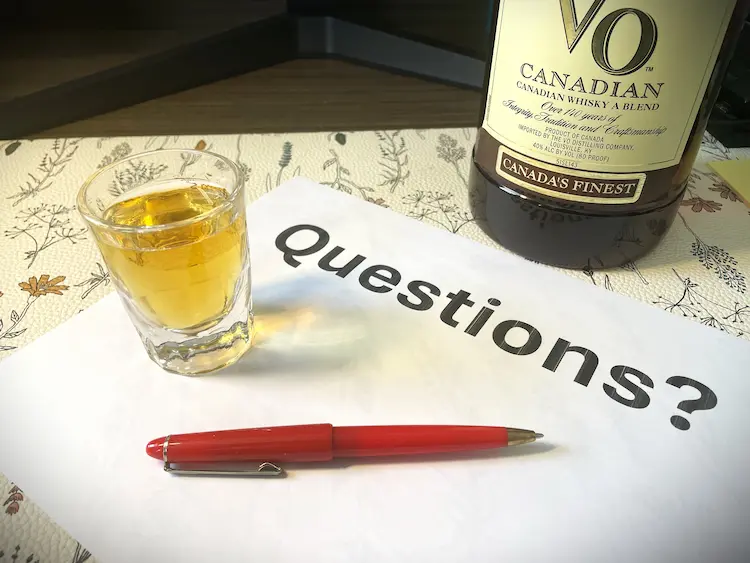
Q: Can whiskey cause a gluten reaction?
A: While pure distilled whiskey is gluten-free, some individuals may still experience reactions. These reactions are likely due to other compounds rather than gluten.
Q: Should I avoid whiskey if I have celiac disease?
A: Most people with celiac disease can safely consume whiskey.
Q: Are all whiskeys equally safe?
A: Yes, all pure distilled whiskeys are gluten-free. However, be cautious with flavored varieties and always check labels for added ingredients.
Q: What about craft whiskeys?
A: Craft whiskeys follow the same distillation process and should be equally safe. However, always verify that no gluten-containing ingredients are added after distillation.
Q: Can I use whiskey in cooking?
A: Yes, whiskey remains gluten-free when used in cooking, just as it is when consumed as a beverage.
Q: What if I'm still worried?
A: Some brands made from non-gluten grains like corn or sorghum are available. These might provide extra peace of mind, though they're not necessarily "more gluten-free" than traditional whiskeys.
Q: Does caramel coloring in whiskey contain gluten?
A: No. Caramel coloring used in whiskey is gluten-free and typically made from corn or sugar beets.
Q: Is Scotch gluten-free?
Yes, Scotch is a type of whiskey. It is a distilled spirit and is gluten-free. Be cautious with heavily flavored varieties and watch for added ingredients.
Q: Is bourbon safe on a gluten-free diet?
Yes. Bourbon is a type of whiskey and is made primarily from corn although other grains may be involved. It is a distilled spirit so if nothing is added, it’s gluten-free. Check the label to be sure.
About the Author
Hi, I'm Patty — a celiac since 2012, culinary school grad, and the creator of Naturally Gluten-Free.
I earned my Culinary Skills diploma from George Brown College with a focus on nutrition and cooking for special diets. After years of living with celiac disease, I know how confusing alcohol labels can be — especially when you're just trying to enjoy a safe drink with friends.
I created this guide to help you feel confident and informed. Every recommendation is based on personal experience, brand research, and reliable sources — no guesswork, no fluff.
If you’re ever unsure about a product, reach out! We’re in this together.
Sources:
1. Association, C. C. (2023, May 31). Alcohol labelling in Canada. Celiac Canada. https://www.celiac.ca/food-labelling/alcohol-labelling-in-canada/
2. TTB ruling 2020-2. TTB. (n.d.). https://www.ttb.gov/laws-regulations-and-public-guidance/rulings/r2020-2
3. Program, H. F. (n.d.). Gluten and food labeling. U.S. Food and Drug Administration. https://www.fda.gov/food/nutrition-education-resources-materials/gluten-and-food-labeling
4. Thompson, T. (2014, September 7). Caramel color. Gluten Free Dietitian. https://www.glutenfreedietitian.com/caramel-color/
5. What you need to know about alcohol and allergies. Texas Health Resources. (n.d.). https://www.texashealth.org/areyouawellbeing/Allergies/What-You-Need-to-Know-About-Alcohol-and-Allergies#:~:text=Aged%20and%20Fermented%20Alcohols:%20Alcohols%20that%20undergo,types%20of%20spirits%20like%20whiskey%20and%20rum.
6. WHISKYSTACK. (2023, August 31). Tannins in whiskey - the subtle power behind taste and Mouthfeel. WHISKYSTACK. https://whiskystack.com/en-int/blogs/nyheder/tanniner-i-whisky-den-subtile-kraft-bag-smag-og-mundfolelse#:~:text=While%20tannins%20are%20often%20associated%20with%20wine%2C,aged%2C%20the%20level%20of%20tannins%20can%20vary.
7. Dr. Christian Small( Medical Reviewer )Dr. Small’s professional experience encompasses General Psychiatry. (2024, October 1). Alcohol and autoimmune disease: What’s the connection? Golden Gate Recovery In Marin County, CA. https://goldengaterecovery.com/alcohol-and-autoimmune-disease/#:~:text=Drinking%20alcohol%20can%20have%20significant,Dangers%20of%20Binge%20Drinking%20Alcohol
